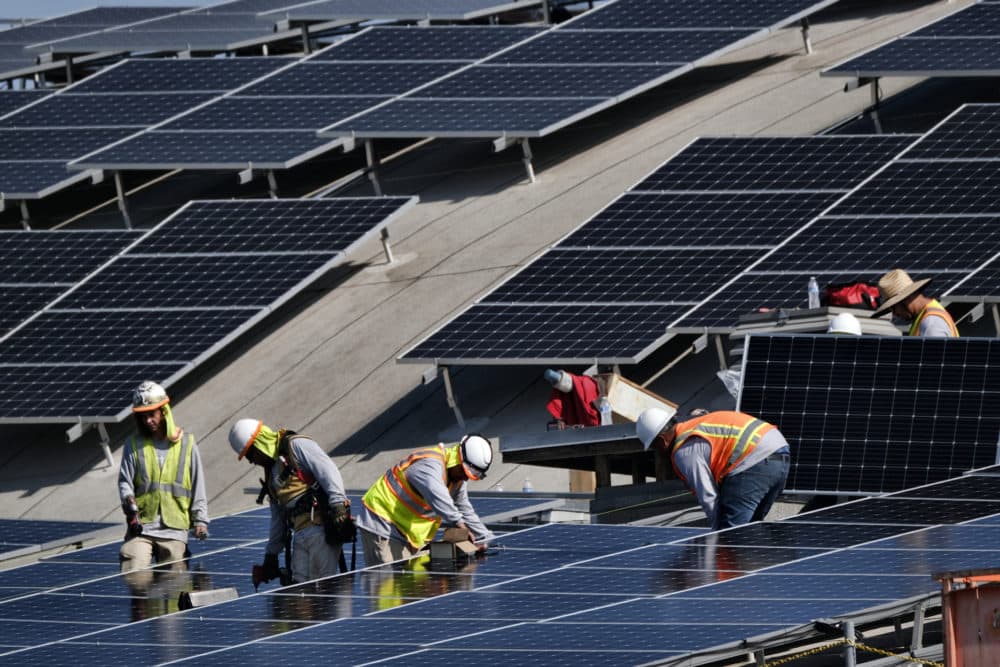Advertisement
The Biggest Winner In Green Jobs? Construction, Report Says

A new report from the environmental nonprofit Climate XChange suggests that every million dollars invested into green industries could create 14 jobs in Massachusetts — nearly double what the state’s 10 largest industries combined create. And the biggest winner may be the construction industry.
“[Solving] the climate crisis is no easy task,” said Jonah Kurman Faber, research director at Climate XChange and the report’s lead author, “but the silver lining of addressing that task is that there’s a lot of work to be had, and that work pays well.”
The report, “Investing in a Better Massachusetts: An analysis of Job Creation and Community benefits from Green Investments,” tracked how funds allocated to more than two dozen planned or in-progress environmental projects could ripple through the state economy. Researchers found that green investments were some of the most effective job creators in the state, and could lead to other benefits like cleaner air, lower energy costs, fewer traffic accidents, and reduced greenhouse gas emissions.
The report does not give a definitive projection for the total number of jobs Massachusetts will create as a result of current federal or state climate legislation. Instead, it projects the number of jobs created per $1 million, and cost savings per dollar invested, in green industries including clean energy, infrastructure, and natural resource conservation.
Faber said the report creates a model that policy makers can use to analyze potential stimulus projects.
“Over the next few months, we’re going to have a lot of conversations as a state about how to spend money,” he said. “And every time we have that conversation, this data can be applied.”
The report also suggests that every million dollars invested in green industries creates about $1.1 million in public health benefits, from cleaner air, increased physical activity inspired by infrastructure improvements, and fewer traffic fatalities due to more people riding public transportation.
The report notes that equity in green jobs is a concern: "Clean energy jobs are overwhelmingly held by White men, and workers who are currently underrepresented in the clean energy workforce are often not reaping some of the benefits discussed in this report."
Kerry Bowie, founder and executive director of Browning the Green Space, an organization dedicated to advancing equity and inclusion in clean energy, said policy makers must be intentional about closing that gap and ensuring the opportunities highlighted in the report are felt by all communities.
Advertisement
“The big thing for me is, that we’re not doing to or for the community, but with the community,” Bowie said.
Faber said an important question people should be asking to build on the report is: “How is the public engaged in these decisions so that actual people are prioritized?”
Climate XChange is currently working on a report on the priorities of frontline communities across Massachusetts that they expect to publish in the coming weeks, according to Faber.
